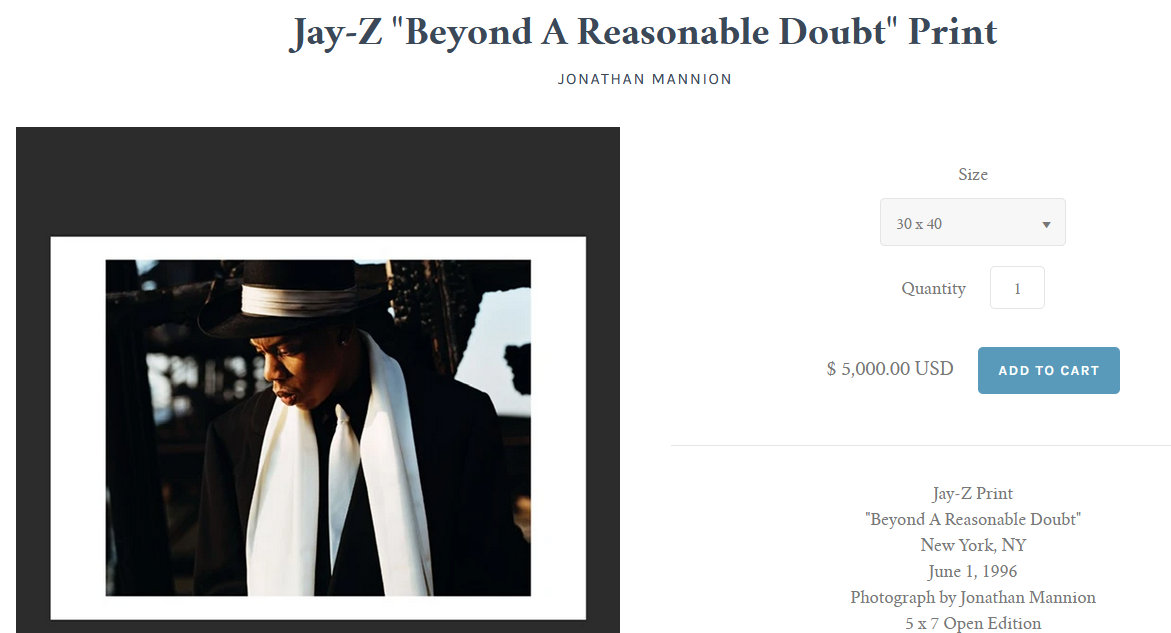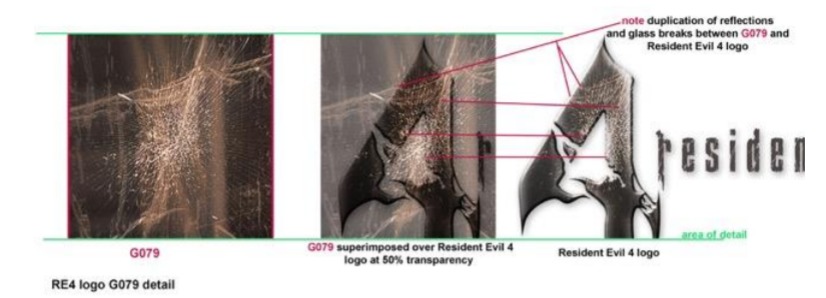Three high-profile US copyright lawsuits involving professional photographers have recently been filed, with Instagram, rapper Jay Z, and video game developer, Capcom, heading to court.
Instagram sued over embed API
Two US photographers, Alexis Hunley and Matthew Scott Brauer, have filed a class action suit against Instagram for enabling copyright infringement through its Embed API.
Instagram, and other social media platforms, have an Embed API that allows posts, including photos and videos, to be generated on a third-party website. It’s done by copy and pasting code, which crucially keeps the content hosted on Instagram’s servers. Online media outlets are fond of the Embed API, as displaying Tweets, YouTube videos, and Instagram posts is a free and easy method to provide additional sources or visual content. But the Embed API has also been abused and treated as a copyright loophole, as news outlets sidestep licensing an image for an article or blog post by embedding content.
Here’s an embedded post of Facebook founder, Mark Zuckerberg, hydrofoiling in Hawaii.
View this post on Instagram
The class action lawsuit has been filed on behalf of ‘all individuals’ who have had copyrighted material embedded on a third-party website without consent via Instagram. The lawyers anticipate ‘many thousands’ of content creators could sign on as complainants to the lawsuit against Instagram.
Here’s how Hunley and Brauer’s lawyers allege Instagram is complicit in copyright infringement:
‘Instagram… created and encouraged the use of Instagram’s embedding tool to execute a scheme to expand and grow Instagram’s presence on third party websites to obtain a direct financial benefit derived from increased traffic, impressions, clicks and views monetised through advertising revenue on Instagram.
The effect of this scheme has been the usurpation of the value of the copyrighted works, as the practice of embedding posts from Instagram has vitiated and diluted the market for licensing fees. By encouraging third party online publishers such as BuzzFeed.com, Time.com, Mashable.com, and others to use the embed tool to display copyrighted works without a license or permission from the copyright owners or from Instagram, Instagram is secondarily liable for each instance of those online publishers infringing a copyright owner’s display right caused by the unauthorised embedding of the respective photo from the user’s Instagram post.’
The legal document claims Instagram ‘knew or recklessly disregarded’ that no third-party would ever obtain a licence for embedding content. It again references the embed tool as generating clicks and traffic to Instagram, describing it as ‘revenue generating conduct’ that serves to primarily benefit the social media giant.
The lawyers also allege Instagram ‘misled the public to believe that anyone was free to get on Instagram and embed copyrighted works from any Instagram account, like eating for free at a buffet table of photos, by virtue of simply using the Instagram embedding tool’.
Suing the mighty powerful Instagram for copyright infringement is a David versus Goliath legal challenge. But the plaintiffs make a good point. Many online publishers have become accustomed to using embed API, and there is an assumption that it’s fair game. It is, after all, dreadfully easy to embed content. There are no warnings or reminders about gaining permission from the copyright holder, or notifications to inform the copyright holder that their post has been embedded. Instagram also doesn’t allow users to ‘opt out’ of having their content embedded without making their account private, which isn’t ideal for a professional photographer using the platform for marketing and maximising their reach.
The Instagram Embed API has been at the centre of a few legal battles between photographers and news outlets, proving it’s an unclear and untested area of intellectual property law. In one lawsuit, Sinclair v Mashable, the online publisher’s lawyers successfully argued Instagram’s Terms of Service infers a sub-licence by using the embed API. Then less than a year later in McGucken v Newsweek, the judge ruled that the Terms of Service didn’t provide enough evidence. And so the Sinclair v Mashable case ruling was revised ‘in order to correct clear error’, and it was later settled out of court.
When the McGucken v Newsweek case was being reported in June 2020, a Facebook spokesperson told Ars Technica that the API isn’t a copyright loophole and third parties must gain permission to embed copyrighted material.
That left the Instagram Embed API looking more dangerous for third parties to utilise. The photographers want Instagram to ’employ reasonable methodologies’ to prevent copyright infringement via the Embed API. An ‘opt-out’ button, or copyright notifications and warnings, for instance.
Jay Z has 99 problems, and a photographer is one
Rap superstar, Jay Z, is suing Jonathan Mannion, a photographer who shot his 1996 debut album cover Reasonable Doubt, for unlawfully profiting off pictures of the rapper without consent.

According to the lawsuit, obtained by Vulture, Mannion sold prints of Jay Z for thousands of dollars and is ‘exploiting’ the rapper’s name and likeness. When Jay Z requested Mannion stop selling the photos, the photographer allegedly ‘demanded that Jay-Z pay him tens of millions of dollar’.
Mannion’s lawyer responded that: ‘Mr. Mannion has created iconic images of Mr. Carter [Jay Z] over the years, and is proud that these images have helped to define the artist that Jay-Z is today. Mr. Mannion has the utmost respect for Mr. Carter and his body of work, and expects that Mr. Carter would similarly respect the rights of artists and creators who have helped him achieve the heights to which he has ascended. We are confident that the First Amendment protects Mr. Mannion’s right to sell fine art prints of his copyrighted works, and will review the complaint and respond in due course.‘
A factor in the case will be the contract between the photographer and Jay Z. Mannion may have retained copyright, and therefore the ability to use the images. This seems likely given Jay Z is suing Mannion for misappropriation of his likeness, and not copyright infringement. Whether Mannion is unlawfully profiting off Jay Z name and identity will be up to the courts, but there have been similar cases where the courts sided with the plaintiff.
Mannion is a prolific rap music photographer. He’s not only shot several Jay Z album covers, but also Run DMC, Rick Ross, Ludacris, Kelis, Lil Wayne, DMX, Eminem, Cypress Hill, Akon, Ja Rule, and many others.
US$12 million reasons to licence textures
Designer, Judy A. Juracek, has filed a copyright lawsuit against Japanese video game developer, Capcom, for using at least 80 photos of textures she captured in two games. She is seeking US$12 million in damages.
In 1996 Juracek published a book, Surfaces: Visual Research for Artists, Architects, and Designers, which contains more than 1200 photos of different textures. Some versions also come with a CD of ‘easy-to-use screen resolution TIFF files of every image’, which also includes a copyright notice requesting users acquire a commercial-use licence.
Capcom was the victim of a data breach in 2020, and information was leaked online. In the leak were file names that matched the ones used in Juracek’s Surfaces CD. This inkling led Juracek to discover numerous instances where her textures allegedly appear in two games, Resident Evil 4 and Devil May Cry.
The Resident Evil 4 logo, for instance, includes shattered glass that’s identical to a texture photographed by Juracek.

‘It is hard to imagine that Juracek would take a photo of shattered glass in Italy and interior mansion door design and that Capcom artists would reproduce the exact same pattern of shattered glass in a logo and interior design without benefit of Juracek’s photographs,’ she said in the lawsuit.
The designer’s legal papers include over 100 pages, showing more than 200 instances where Capcom allegedly used her textures.

The matches are uncanny. It seems plausible that copyright infringement may be rampant in video game design, as it goes largely unchecked. No photographer would have the resources to scan through video games.





Be First to Comment